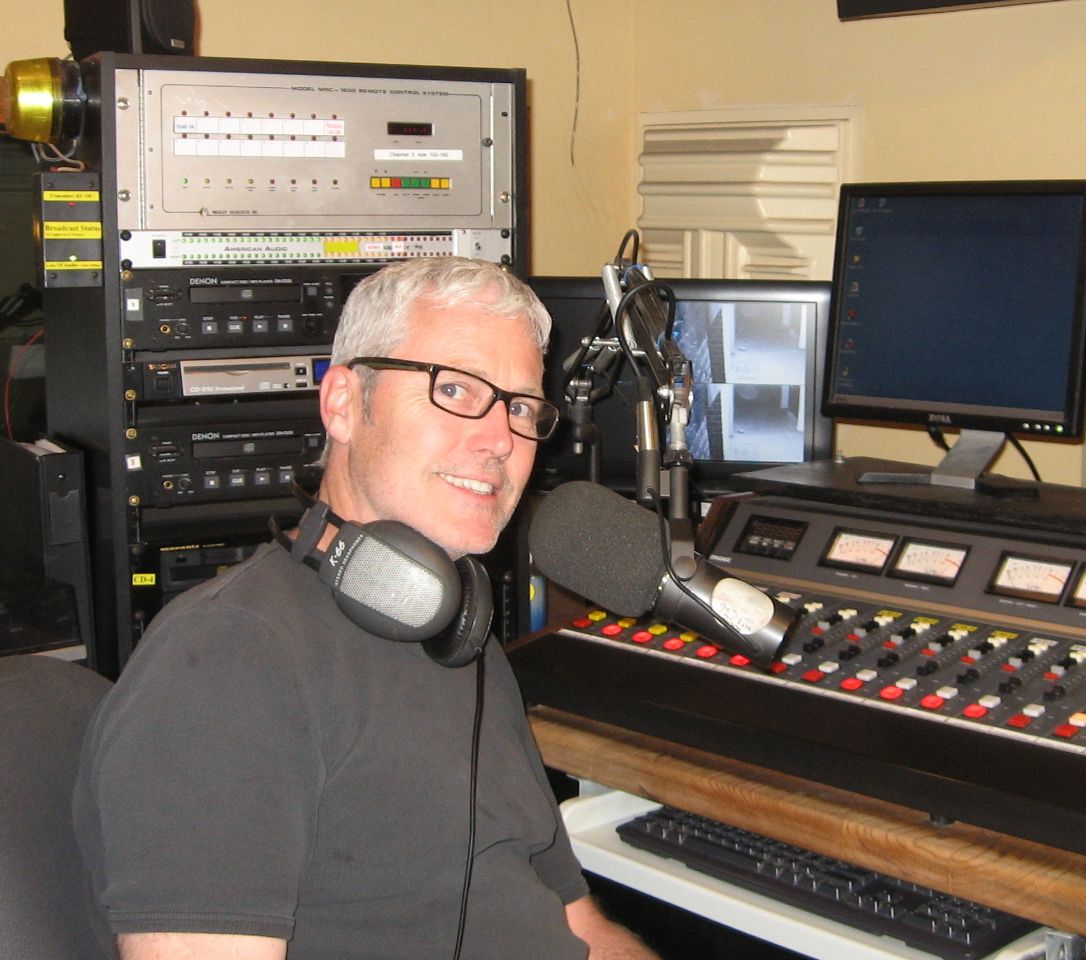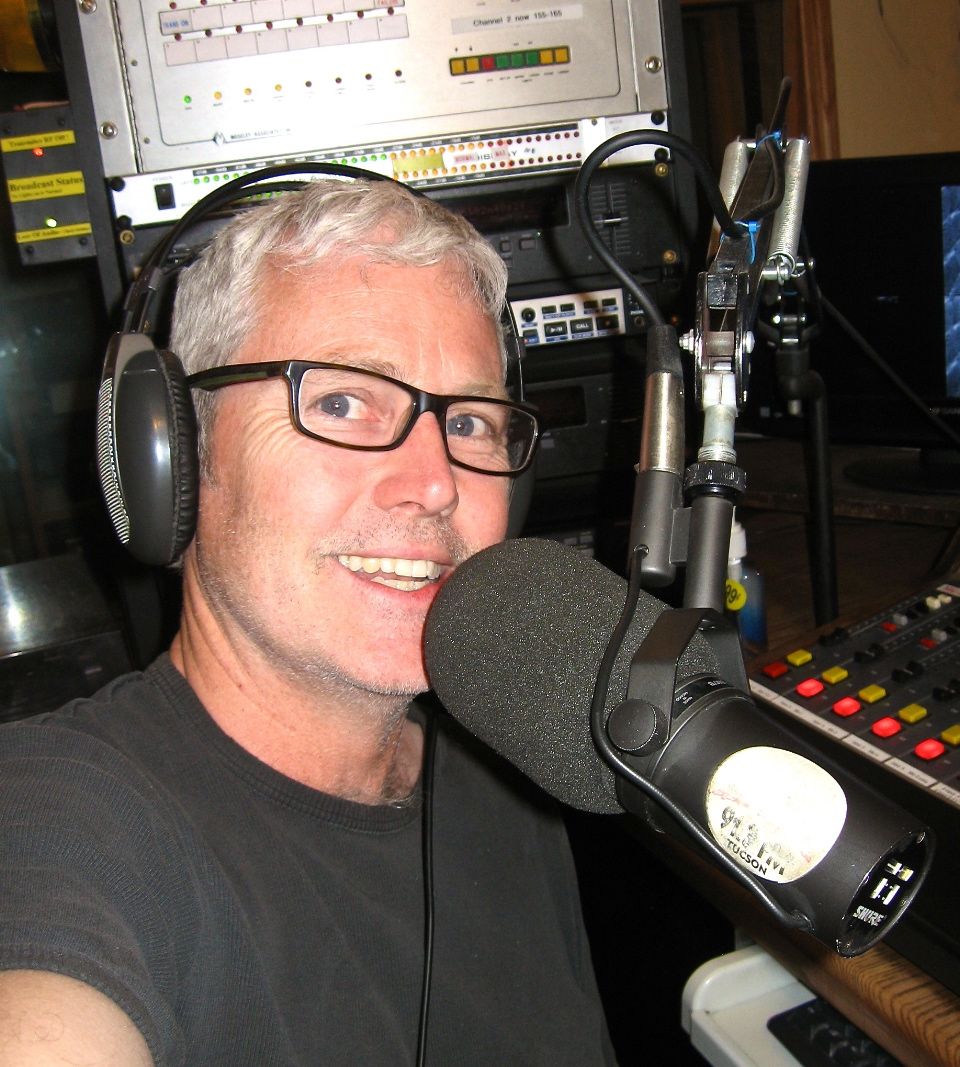Eye doctor hosts community radio programs to promote musicians
Many people in Tucson, AZ, recognize Dan Twelker, OD, PhD, not by his face, but by his voice.

Many people in Tucson, AZ, recognize Dan Twelker, OD, PhD, not by his face, but by his voice.
Dr. Twelker is a local celebrity of sorts. For about 6 years, he hosted two radio programs on KXCI, a community radio station, featuring interviews with up-and-coming musicians and live performances.
After moving to Tucson in 2002, he discovered a thriving music scene, much to his surprise. Although he’s not a professional musician, Dr. Twelker enjoyed playing the guitar and writing and singing folk songs.
“I decided to become a part of that scene,” he says. “I started playing my guitar for more than 2 hours a day, created 12 songs, played and recorded them and put them on an album called Recycled Love.
While his debut CD hasn’t quite made Billboard’s top 10, he says success comes in many forms. “Just creating and recording the songs, that’s success right there,” he says, adding that so far, he’s distributed a few hundred CDs.
Meanwhile, a friend told him about KXCI, which invited local volunteers to host 2-hour weekly shows that focused on a wide variety of music genres, such as blues, rock, and jazz, and referred him to a 3-week DJ course. Dr. Twelker enrolled, studied the broadcast rules and regulations set by the Federal Communications Commission (FCC), and received helpful tips for interviewing guests, producing an entertaining program, speaking clearly into a microphone, and operating the mixing board, CD players, turntables, and other equipment.
Live from Tucson
In 2005, Dr. Twelker’s first program-“The Road Show”-aired every Tuesday evening for roughly 3 years. He called himself Dr. Dan, selecting the same name his patients used. By 2008, he was ready for a change and began hosting, “Locals Only,” a 2-hour show on Monday evenings that promoted local musicians.
He says his communication skills as an optometrist helped him conduct radio interviews. As an eye doctor, he says he learned how to handle chatty patients, act as referee between couples or parents and their children, and encourage shy patients to respond to his questions. Musicians, he says, are no different than his patients, so he applied the same skills during live shows.
Still, not every radio interview went as planned. He points to an independent Canadian band composed of identical twin sisters. Dr. Twelker planned on asking them about their relationship because they had earned a reputation of arguing with each other while on tour.
“They got into an argument in the middle of the radio interview about the origins of a song they wrote,” he recalls. “It was a friendly argument, but for a period of time, I completely lost control of the interview.”
By far, his worst interview was with a 19-year-old singer-songwriter. Before going on the air, he reminded her that the interview would be live. “We don’t have a bleep button.”
But some habits are hard to break.
When Dr. Twelker asked the young musician about her musical influences, she mentioned Stevie Nicks from Fleetwood Mac , then added, “But I like just about anything that doesn’t sound like s---.”
The musician realized her mistake by the expression on Dr. Twelker’s face, but by then it was too late. Fortunately, Dr. Twelker had learned how to handle such situations. Simply ignore it, keep talking and never-ever-apologize.
The interview continued. Then the young woman played a song and “dropped the F bomb,” he says, adding that when she finished singing, he ended the interview and played a recorded track.
“I thought she was going to faint,” he says, after realizing she repeated the same mistake. “She kept fanning herself and asked for a cold towel to put on her forehead.”

So many bands, so little time
As Dr. Twelker’s fan base grew, so did his reputation for introducing local talent. Every week, his inbox at the radio station was overstuffed with invitations to CD or album release parties. He attended three to four each week, acting as KXCI’s face in the community. It didn’t take long before he was burned out.
“I reached a point in my life where I didn’t have the energy to do it at that level anymore,” he says. He has since trained his replacement and fills in as host when needed.
Looking back, he says the radio shows were challenging, exciting, and sometimes intimidating.
“Your interviews are being broadcast to hundreds or thousands of people,” he says. “Still, if you love music, there’s no better way to promote artistic expression in your community.”ODT
Newsletter
Want more insights like this? Subscribe to Optometry Times and get clinical pearls and practice tips delivered straight to your inbox.